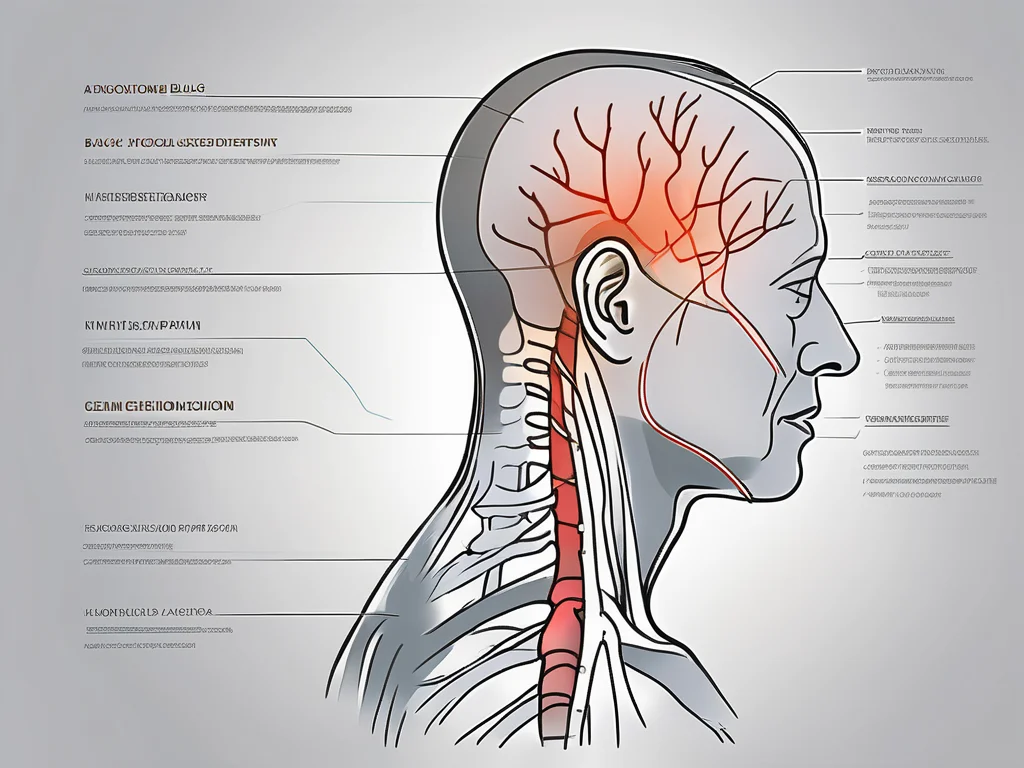Back head pain, often linked to occipital neuralgia, can disrupt daily life with its intense discomfort. Knowing when to worry, how to treat it, and ways to prevent it is essential for managing this condition effectively. This blog dives into the causes, medical evaluation, treatment options, and preventive measures for back head pain, offering practical insights to improve your quality of life.
What Is Back Head Pain and Why Does It Occur?
Back head pain, also known as occipital neuralgia, manifests as a throbbing or aching sensation at the back of the head, sometimes radiating to the temples or behind the eyes. It stems from irritation or compression of the occipital nerves, which run from the spinal cord to the scalp. Common triggers include muscle tension, poor posture, stress, or underlying medical conditions.
Key Causes:
- Occipital Nerve Irritation: Compression or inflammation of the occipital nerves can cause sharp or throbbing pain.
- Muscle Tension: Tight suboccipital muscles at the base of the skull, often due to stress or prolonged sitting, contribute to discomfort.
- Medical Conditions: Issues like cervical spine disorders, migraines, or infections can trigger back head pain.
How Does Posture Contribute to Back Head Pain?
Poor posture, such as slouching or hunching over devices, strains the neck and upper back muscles, leading to back head pain. Prolonged poor alignment can tighten the suboccipital muscles, exacerbating discomfort.
Posture-Related Tips:
- Maintain a neutral spine while sitting or standing.
- Use ergonomic chairs and adjust workstations to support proper alignment.
- Incorporate stretching and strengthening exercises for the neck, shoulders, and core to reduce strain.
People Also Ask: How does bad posture cause headaches?
Poor posture overworks neck and upper back muscles, leading to tension that radiates as pain in the back of the head.
What Role Does Stress Play in Back Head Pain?
Stress is a significant trigger for tension headaches, which often manifest as back head pain. Emotional or physical stress can tighten neck and shoulder muscles, increasing discomfort.
Stress Management Strategies:
- Practice deep breathing, meditation, or yoga to reduce tension.
- Ensure adequate sleep and hydration to minimize stress-related headaches.
- Adopt a balanced diet to support overall health and reduce inflammation.
People Also Ask: Can stress cause occipital neuralgia?
While stress doesn’t directly cause occipital neuralgia, it can exacerbate muscle tension, leading to headaches that mimic its symptoms.
What Medical Conditions Are Linked to Back Head Pain?
Several medical conditions can cause or contribute to back head pain, requiring professional evaluation for accurate diagnosis and treatment.
Common Conditions:
- Cervical Spine Disorders: Herniated discs or osteoarthritis can compress occipital nerves, causing pain.
- Migraines and Cluster Headaches: These can present as pain radiating to the back of the head.
- Infections: Conditions like meningitis may cause severe head pain and require urgent care.
When Should You Seek Medical Attention for Back Head Pain?
While occasional back head pain may resolve with lifestyle changes, certain symptoms warrant immediate medical attention.
Red Flags:
- Severe or persistent pain lasting several days.
- Accompanying symptoms like fever, neck stiffness, vision changes, or difficulty speaking.
- Pain following recent head trauma or an accident.
Why It Matters: These symptoms could indicate serious conditions like meningitis, brain tumors, or post-traumatic complications, requiring prompt evaluation.
How Is Back Head Pain Diagnosed?
Diagnosing back head pain involves a multi-step process to identify its root cause.
Diagnostic Steps:
- Medical History Review: Doctors assess pain onset, duration, triggers, and associated symptoms.
- Physical Examination: Evaluates neck mobility, muscle tenderness, and neurological signs.
- Diagnostic Tests: Imaging (e.g., MRI, CT scans) or nerve conduction studies may be used to pinpoint causes like nerve compression or spinal issues.
People Also Ask: How do doctors diagnose occipital neuralgia?
Doctors use a combination of medical history, physical exams, and sometimes imaging or nerve tests to diagnose occipital neuralgia.
What Are the Treatment Options for Back Head Pain?
Treatment for back head pain varies based on its cause and severity, ranging from conservative measures to medical interventions.
Common Treatments:
- Conservative Approaches:
- Rest and over-the-counter pain relievers (e.g., ibuprofen) to reduce inflammation.
- Physical therapy to strengthen neck muscles and improve posture.
- Heat or cold therapy to relax muscles and reduce pain.
- Alternative Therapies:
- Acupuncture to stimulate pain relief and improve blood flow.
- Massage therapy to release muscle tension.
- Medical Interventions:
- Nerve blocks to temporarily alleviate severe pain.
- Surgery for conditions like herniated discs if conservative treatments fail.
How Can You Prevent Back Head Pain?
Preventing back head pain involves addressing its triggers through lifestyle changes and proactive habits.
Preventive Measures:
- Maintain Good Posture: Use ergonomic setups and practice posture-correcting exercises.
- Manage Stress: Incorporate relaxation techniques like meditation or progressive muscle relaxation.
- Stay Active: Regular exercise, including cardio and strength training, improves circulation and reduces muscle tension.
- Healthy Lifestyle: Prioritize hydration, a balanced diet, and adequate sleep to support overall health and reduce inflammation.
Conclusion: Taking Control of Back Head Pain
Back head pain, whether caused by occipital neuralgia, poor posture, stress, or medical conditions, can significantly impact daily life. By understanding its causes, seeking timely medical attention, and adopting preventive strategies, you can effectively manage and reduce its frequency. Incorporate stress-relief practices, maintain proper posture, and consult healthcare professionals for persistent or severe symptoms to improve your well-being and reclaim your comfort.



